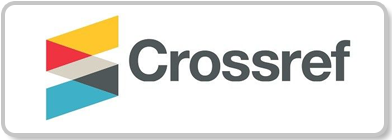Analisis Risiko Keterlambatan pada Proyek Refractory di PT. BAR dengan Metode House of Risk
DOI:
 https://doi.org/10.37859/jst.v12i1.9416
https://doi.org/10.37859/jst.v12i1.9416
Abstract
PT. BAR is a refractory material manufacturer and a provider of installation and repair services for industrial units such as boilers, furnaces, and dryers. In practice, the company faces problems with project delays that have an impact on operational cost inflation and decreased customer satisfaction. This study aims to identify the causes of project delays and formulate risk mitigation strategies systematically. The method used is the House of Risk (HOR), which consists of two stages of analysis. At the HOR-1 stage, risk event and risk agent identification is carried out, as well as the calculation of the Aggregate Risk Potential (ARP) value to determine the risk agent with the highest priority. Data were processed from 68 projects from October 2024 to March 2025, with the finding that 20 projects experienced delays and 19 projects experienced cost inflation exceeding the RAB. Furthermore, at the HOR-2 stage, five mitigation actions were prepared which were evaluated based on the ratio of effectiveness to the level of difficulty of implementation. The three main recommended mitigation actions are a maximum location survey of H-1, checking documents and equipment, and coordinating with users and vendors. As a form of implementation, a redesign of the project implementation flow was prepared that integrates mitigation actions into the actual work process, both for regular and sudden projects. The results of the study indicate that the designed mitigation can be applied applicatively and has the potential to increase the efficiency of implementation and control the risk of project delays preventively.
Downloads
References
Firmansyah, A. R., & Mahbubah, N. A. (2022). Implementasi Metode House of Risk Pada Evaluasi Keterlambatan Proyek Renovasi Gedung Aula Pp3 Blitar Um. Sigma Teknika, 5(2), 233–241. https://doi.org/10.33373/sigmateknika.v5i2.4591
Soetjipto, J. W., Qudsy, N. H., & Arifin, S. (2021). Analisis Risiko Keterlambatan Proyek Menggunakan Metode House of Risk. Journal of Applied Civil Engineering and Infrastructure Technology, 2(1), 19–26. https://doi.org/10.52158/jaceit.v2i1.149
Febianti, E., Muharni, Y., & Kulsum, K. (2021). Penerapan lean manufacturing untuk mereduksi waste pada produksi spare part screw spindle set. Journal Industrial Servicess, 7(1), 76. https://doi.org/10.36055/jiss.v7i1.12338
Firdaus, R. Z., Wahyudin, W., & Zani, R. (2023). Penerapan Konsep Lean Manufacturing untuk Meminimasi Waste pada PT Anugerah Damai Mandiri ( ADM ) Applying Lean Manufacturing Concepts to Minimize Waste in PT Anugerah Damai Mandiri ( ADM ) Program Studi Teknik Industri , Universitas Singaperbangsa , Kara. 6(1), 21–31.
Julian, L., Kusuma, I., & Nurkertamanda, D. (2018). Implementasi Metode Single Minute Exchange Of Die ( Smed ) Untuk Mempersingkat Waktu Set-Up Mesin Pada Pt . Bimuda Karya Teknik.
Sumasto, F., Azzahra, S., Rangkuti, I. Y., Imdam, I. A., Kurnia, I., Lianny, M., & Solih, E. S. (2025). Jurnal Optimasi Teknik Industri Penerapan Single-Minute Exchange of Die ( SMED ) untuk Penurunan Waktu Setup dan Biaya Produksi pada Injection Molding. 52–57.
Downloads
Published
How to Cite
Issue
Section
License
Copyright (c) 2025 Benny Surya Putra

This work is licensed under a Creative Commons Attribution-NonCommercial-ShareAlike 4.0 International License.





















